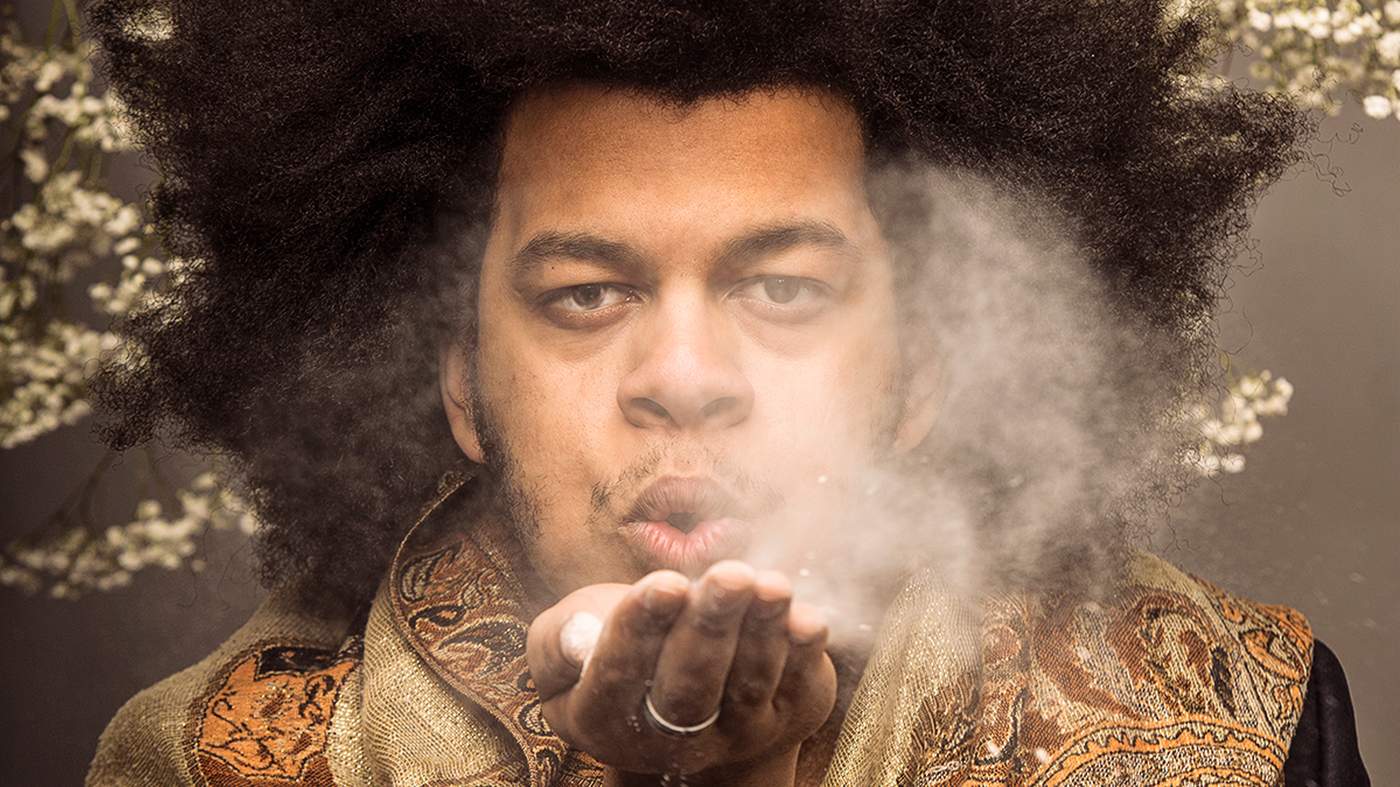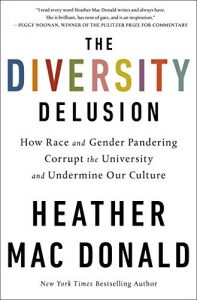
Until 2011, UCLA students English had to take a course in Chaucer, a couple in Shakespeare, and one in Milton as the fundamental works of English literature. Some junior faculty revolted, and UCLA promptly changed its course to studying compulsory papers in “Gender, Race, Ethnicity, Disability, and Sexuality Studies; Imperial, Transnational, and Postcolonial Studies; Genre Studies, Interdisciplinary Studies, and Critical Theory; or Creative Writing.”
According to the course catalog, giants of English literature were irrelevant. but students must study “alternative rubrics of gender, sexuality, race, and class.” UCLA’s undergraduates, therefore, had to choose among courses like, “Women of Color in the U.S., Women and Gender in the Caribbean, Chicana Feminism, Studies in Queer Literatures and Cultures, and Feminist and Queer Theory.”
Likewise, at Columbia University, a black music undergraduate rebelled against the classics. “Why did I have to listen in music humanities to this Mozart? My problem with the core is that it upholds the premises of white supremacy and racism. It’s a racist core. Who is this Mozart, this Haydn, these superior white men? There are no women, no people of color.”
Related: The Growing Threat of Repressive Social Justice
These are some of the episodes described in Heather Mac Donald’s new provocative book, “The Diversity Delusion: How Race and Gender Pandering Corrupt the University and Undermine Our Culture” (St. Martin’s Press, 2018), which chronicles the hollowing out of Western Universities and the coup that took place in academe. This isn’t the first attempt to chart the decline of Western education. Victor Davis Hanson and Roger Kimball touched upon this Gramscian revolution in “Who Killed Homer: The Demise of Classical Education,” “Tenured Radicals,” and “The Rape of the Masters” respectively, as Peter Hitchens talked about it in “The Abolition of Britain.” But Mac Donald’s is an unusually strong, data-rich chronicling.
Mac Donald connects the diversity bureaucracy, the race and gender departments acting as Soviet commissars and arbiters of acceptable debate in campuses, the treatment of students as consumers with universities catering to their well-being rather than their intellectual maturity and knowledge, campus feminism, the effects of the 60s social revolution, and how they all “increasingly infuse business, government, and civil society.” Put simply, a handful of people are changing society through educational institutions, based on their ideologies.
The arguments against these concerted efforts are usually made by people who are considered cranks and rubes by the academic sophisticates, dinosaurs from another age, not enlightened enough to understand why someone should explore The SlutWalk Movement: A Study in Transnational Feminist Activism, and not Shelley’s Ozymandias.
Alternatively, pushback falls on claims of Neo-Marxism by the likes of conservative or classical liberals like Jordan Peterson or Charles Murray, who are immediately considered a threat by the same people who are stealthily changing the academy. As a result, they face character assassination and even assault by protesters instigated by the radical left. Mac Donald herself faced de-platforming and protests. She writes, “(t)aught to believe that they are an existential threat from circumambient bias, students equate nonconforming ideas with “hate speech,” and “hate speech” with life-threatening conduct that should be punished, censored, and repelled with force if necessary.”
Related: How a Social Justice Mob Fired a Tenured Professor
It’s all an existential struggle against conservative thought, a war that if you don’t win, you perish. “Civility is shrinking and civil peace may be in jeopardy. Masked anarchists use force to block conservatives from speaking in public forums.” Mac Donald also writes about protests by black students against her talks, for her book The War on Cops. “The ungrammatical list of attributes that ‘We, few of the Black students’ say disqualify me from speaking—“Heather Mac Donald is a fascist, a white supremacist, a warhawk, a transphobe, a queerphobe, a classist, and ignorant of interlocking systems of domination that produce the lethal conditions under which oppressed peoples are forced to live”—unsurprisingly displayed the ignorance already familiar from the rest of their letter, since I was an early and documented opponent of the Iraq War and all such efforts at regime change. The other epithets are not worth responding to.”
Consider the evidence offered in the book. In January 2018, the University of Chicago’s faculty canceled a debate on nationalism featuring Steve Bannon, defying the administration’s written commitment to open debate. Prior to that, in July 2017, the strictest punishment meted out to students at Claremont McKenna was three one-year suspensions for involvement in blockade and harassment. “Naturally, the CMC discipline did not sit well with the students and their supporters. In May 2017, a coalition of CMC students, faculty, and alumni denounced the school’s investigation as the “further criminalization of already marginalized students. Another columnist opined that the black students’ attacks were “not acts of violence. They were acts of self-defense.” A hundred-plus faculty sought to silence Milo Yiannoupoulos who arguably “harms” students “through defamatory and harassing actions.”
At Yale, after disruptive protests, President Peter Salovey “issued the usual fawning declarations of sorrow for the tribulations experienced by Yale’s minority students.” Hundreds of such examples from Berkeley, Yale, Evergreen State, University of Missouri, Pomona, Harvard, and UCLA are described throughout the book. The events are orchestrated or abetted by leftist faculty who have either started a movement against anyone they perceive as conservative and are therefore ideological enemies, or who hope to “decolonize curriculums” and censor articles and papers.
The result is that this culture is seeping through to everyday life, aided by flawed, weaponized research.
A typical example is the Implicit Bias test, which claims that everyone has extreme biases and prejudice “deep inside the brain.” You’re all original sinners, and the only way to rid yourself of sin is constant penance for your and your ancestor’s faults. President Barack Obama raged against “unconscious” biases against minorities and females in science in 2016; James Comey moaned about “much research” which points to police race biases. “Leading the charge was Jerry Kang, a UCLA law professor in the school’s critical race studies program who became UCLA’s highly paid vice chancellor for equity, diversity, and inclusion in 2015 (starting salary: $354,900, now up to $444,000). Kang said in a 2015 lecture: ‘Federal anti-discrimination law has been fixated on, and obsessed with, conscious intent.’”
Related: What Your Sons and Daughters Will Learn at University
The result? Research is being used from Silicon Valley to universities to discriminate against the truly talented, to “diversify” the workforce by admitting half-wits and ideologues. The irony is that the Implicit Bias study, is itself, flawed and unscientific.
Mac Donald draws the conclusion herself. “Campus intolerance is at root, not a psychological phenomenon but an ideological one. At its center is a worldview that sees Western culture as endemically racist and sexist. The overriding goal of the educational establishment is to teach young people within the ever-growing list of official victim classifications to view themselves as existentially oppressed. One outcome of that teaching is the forceful silencing of contrarian speech.” Why? “Progressive pedagogy has long embraced the idea that students should work exclusively in groups as a way to model collectivist democracy. This political agenda is simply a pretext for masking individual differences in achievement that might reinforce group stereotypes.”
Surprisingly, Mac Donald, while correctly identifying the problem of this intra-academic war, never quite goes the full throttle to accuse the people responsible for their attacks on the U.S. Constitution and the once high rigorous standards maintained by most legitimate colleges and universities. She skirts the idea that it is the coddled, effete, weak, and ideological students, but that seems unlikely from the volumes of evidence she offers, which points to the fact that students are simply pawns in a greater game of power by radicals who want to control the academy for their ideological indoctrination.
To simplify, here are the three tenets of the campus radicals: 1. Dumb down curricula and stop the study of Western classics and canon and replace it with feminist, postmodern and postcolonial literature, to relativize culture, and minimize individual achievement. 2. Treat students as consumers and cater to their feelings instead of maintaining rigorous standards of performance. 3. Foment a sense of perpetual oppression in students and use them as pawns to control the academy and change the social and cultural character of the institutions and professions.
This is fundamentally the same 70s radical strategy of Rudi Dutschke who coined the 60s slogan “The Long March through the Institutions.” The hint is in the name. I am not aware if Mac Donald read the feminist journal paper, which tells young activist women studies students to be like viruses and spread through other fields and disciplines to subvert them from within, but her dataset in the book would corroborate the hypothesis.
Well, now what? Mac Donald, unlike many other conservative culture defenders, is neither comically polemical or mindlessly pessimistic. She is not overtly hysterical, even though this book is a serious warning against the hollowing out of the university. For example, there’s a strain of dilettante, bow-tied, effete, libertarian-conservatism, in the UK and the US, which would rather die honorably while talking about principles and Adam Smith, than fight hard for survival.
If the gatekeepers of society — like a section of ideologue academia and the ideologically churned media grads — are corrupt and fallen themselves, what should the people do? Stop paying taxes and demand change from universities? Counter protest and form street movements, fight fire with fire? Move away from legacy media to alternative news sources? Demand immediate legislative intervention? Sitting woebegone and lamenting can only get one so far. What, therefore, is to be done? That answer is not attempted in the book, perhaps its only major flaw. However, it still is a one-stop shop for anyone serious enough to explore the soft coup happening right under their noses, paid for with their own hard-earned money.
Photo: Anneleen Lindsay for Shakespeare Lives

One of Mac Donald’s points is that many students do not buy into the extremist feminism and extremist social justice ideologies. The question is how people with moderate points of view could be mobilized.
We have seen in the U.S. that politicians can gain considerable support by opposing political correctness. Half of Americans voted for a presidential candidate who rejected reverse racism and reverse sexism. The Trump administration is now investigating which institutions broke the law by reverse racist admittance policies. So there are political constituencies that support classical liberal and conservative values.
One part of a response, in addition to continuing to write critically about these issues, is to mobilize politically. Votes count. Legislatures take an interest. The most powerful sources of institutional support for free speech these days is U.S. state legislatures and Canadian provincial legislatures, although as well some educational and free speech organizations are vocal on the matter. We have to be as passionate in support of liberal values as feminists and social justice warriors are for illiberal values.